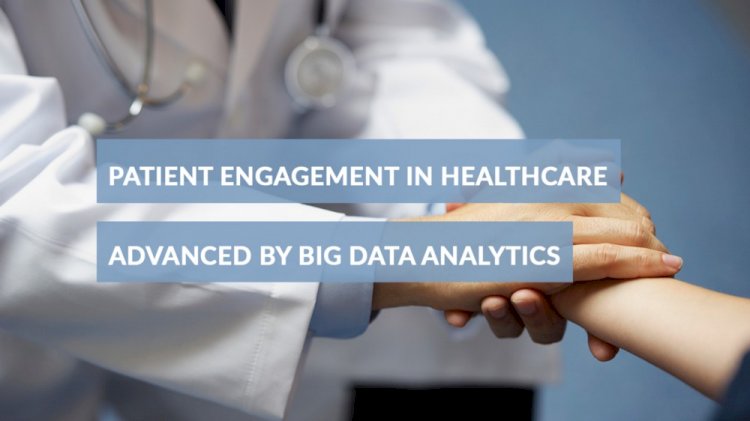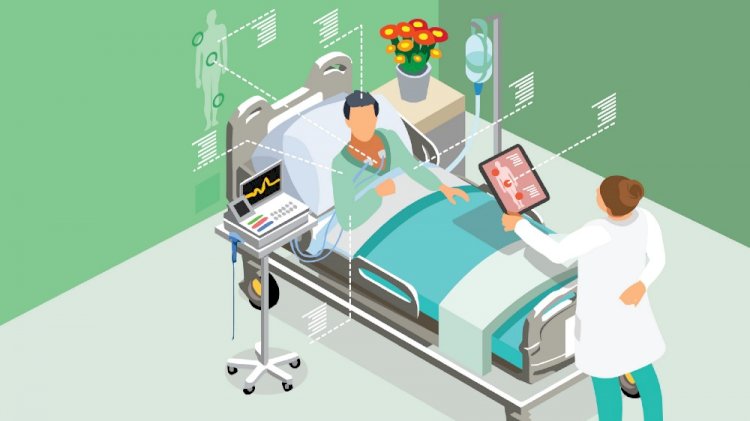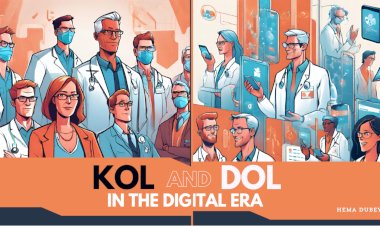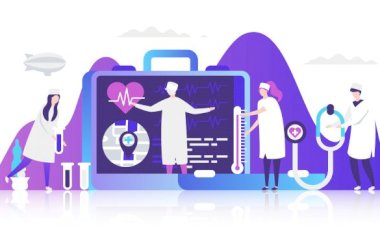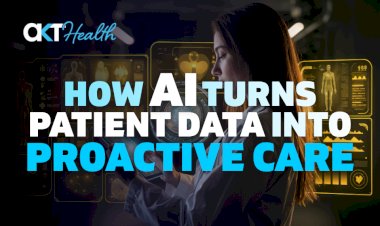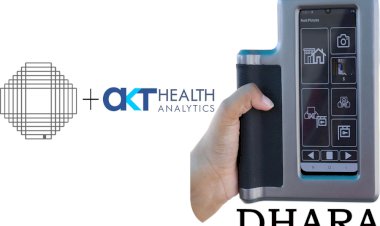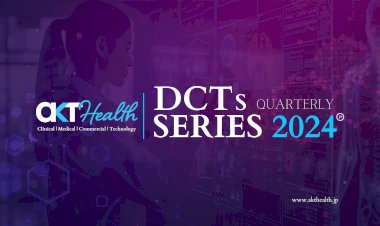PATIENT ENGAGEMENT IN HEALTHCARE
Patient engagement was defined as a concept that combines a patient’s knowledge, skills, ability and willingness to manage his own health and care with interventions designed to increase activation and promote positive patient behaviour.
Present day’s delivery of quality healthcare is on Patient Engagement. It became one of the key elements in an industry. Maintaining Patients well-being, keeping them healthy can be achieved through making them in an active role of their care and understand upon timely updating bidirectional data.
“Patient engagement was defined as a concept that combines a patient’s knowledge, skills, ability and willingness to manage his own health and care with interventions designed to increase activation and promote positive patient behaviour”
In an era of advanced technologies, we have variety of electric devices such as wearable, cell phones and in web portals we have social media. By making use these, both patients and providers now have access of huge data than ever before. This information must be more interpreted and meaningful to data interaction within a proper system otherwise it does more harm to all the parties in that system.
To ensure patient’s active participation for their own care and draw useful conclusions, healthcare industry would get influence of big data analytics tools, including AI (Artificial Intelligence), MLA (Machine Learning Algorithms) and NLP (Natural Language Processing).
To boost patient engagement in the clinical, research and home environments providers need to choose following technologies which is most preferred for the use of big data analytics.
With addition to these popular technologies, newly emerged technology which is firstly used to revolutionize the currency system in global wide that is Blockchain, can be used as a platform to take an advantage of its inherent features.
Blockchain can be applied to many different aspects of the healthcare space such in managing Electronic Health Records (EHRs), validating patient data, and even tracking research methods used to make safer drugs across clinical trials.
USING PATIENT DATA TO TAILOR CHRONIC DISEASE MANAGEMENT:
It is must to patients who is in chronic disease to engage management strategy and comply with treatment procedure in order to maintain their health and conduct care cost low. Self-management interventions can permit patients to maintain track of their health state and continuously engage in their own care individually,
But regardless the potential value of these treatment plans, patients often lose motivation to continue chronic self-management programs if the content, goals, and benefits are not tailored to their individual needs.
Blockchain has the potential for a wide range of applications (across all industries) that can reduce costs, increase accountability, and promote better outcomes with proper, immutable data.
If the content, goals and benefits are not tailored to their individual needs patients often lose the motivation to continue chronic self-management programs.
In the policies of chronic management, patients need to be continuously engaged. Organization should make sure of patient activity is recording in time. By this organizations can develop predictive risk score, personalize treatment policies on top of patient data.
In healthcare, Blockchain can lead to better care with improved transparency, and added protection for all trusted parties. Immutable historical records are core to the way exchanges can be more accurate and useful, providers and patients can feel protected, and insurers can limit risk of fraudulent claims. The Blockchain can serve as a central record access, so all parties have the most accurate data. There is no more reconciling to determine a single truth across systems. It can also address how individual systems display the same data differently.
Consignee and providers both have rich in information that they can build models by using this data. Also, as a help in strength and accuracy of their models, providers can amass some other resources like social determinants of health to accomplish.
With predictive models have examined few patients with different chronic disease, model quite help full when look at all variables, it guides to prioritize patients who are really going to be receptive to changing something in their lifestyle such as nutrition or exercise.
Patient who have mentally illness can also benefit from tailored treatment plans, and organizations can use existing data to design individualized care strategies.
Machine learning tools that were potentially helps in extract actionable insights from structured and unstructured patient’s data for behavioural health management service providers and clinicians.
Our organization’s aim to move from being reactive model that looks only at what has happened, historically to being much more predictive, proactive and targeted service provider. It is a convenient choice to overpass the siloes that exist in the healthcare delivery system, and it is an example of where machine learning can help to bulldoze through those traditional barriers to make progress for an incredibly vulnerable segment of the patient population.
BLOCKCHAIN IN HEALTHCARE MODULES TO INVOKE PATIENTS FOR PARTICIPATION:
Patient’s confinement is the key element in clinical trials for making successful. Unless participants reach certain endpoint in study, data cannot be added to analysis. Having an application interface to all parties in the system to keep activities go smooth. Using the Blockchain technology, an application offering users to interact, alert and remind about due, upcoming activities which they left or yet to do. Reports their past activity status and health progress. Bidirectional interaction of an application supports patient’s participation, research people’s study, by incorporating rewards and other ways to encourage and motivate participants for their involvement.
Most important feature for an engagement and retention, as app enable user to schedule timely alerts, reminders, surveys, delivers motivational invocations, send incentives and collect feedback from participation before, during and after study. Application allows user to add gamification elements to their health activity, providing more tools to make research engaging and rewarding benefits.
A Proof of Engagement concept is created by using AI and Blockchain to verify users and authenticate engagement, preventing ad fraud from occurring within the Blockchain ecosystem.
It has been proven that providing participants with education about living with a disease/condition or providing encouragement notifying through application as the study progresses is the best way to keep them engaged and actively involved, getting more from their participation.
Our system combines an interactive, cognitive bot with the creative physical activities. This AI stores conversational data from user interactions and collects statistic data of health condition, learns from the collected information to better improve its abilities in the future decisions, creating a friendlier, more personalized user experience and treatments. This process of learning from conversations is known as Natural Language Processing (NLP).
ENHANCING PATIENT HEALTH LITERACY BY APPLYING NLP TOOLS:
For patients to take an active role in their own care, they must have a solid understanding of their medical data, as well as how to use that information to make more informed health decisions.
While the surge in patient portal adoption has made it easier for patients to access their clinical data, many still struggle to make sense to their medical information. Low health literacy rates complicated by medical jargon, can lead to poor medication adherence, misinterpretation of lab informed health decisions.
Natural Language Processing (NLP) tools have emerged as a feasible solution to this issue, allowing individuals to translate complex medical information and improve patient health literacy.
Researchers developed an NLP system that defines EHR terms for patients at or below the average health literacy level. After collecting physician feedback, the group made changes to the system’s usability, clarity, and specificity, which improved the tool’s ability to recall medical definitions.
Although neither study was designed to develop a fully functioning system that could be used in a real clinical setting, the early results of both show that NLP could soon play an integral role in patient engagement and health literacy. Clinical trials can facilitate the development of novel treatments, more accurate diagnoses, and innovative cures for debilitating diseases.
Many patients must travel long distances to clinical research sites, which presents a significant barrier to participation. Artificial intelligence tools have the potential to increase engagement in clinical trials, offering researchers a simpler way to recruit and connect with diverse patient populations. Virtual trials that utilize AI-driven tools such as smartphone apps and wearable devices support both passive and active data collection and can significantly enhance patient enrolment and engagement in clinical research.
Digital technologies can transform how companies approach clinical development by incorporating valuable insights from multiple sources of data, radically improving the patient experience, and increasing the amount and quality of data collected in trials
To overcome patient travel Burdon researchers can use these tools and encourage patients to participate in clinical trials from their living home. In support to this, Artificial Intelligence can help in precise the time-consuming process of matching patients to appropriate clinical trials, a challenge that is also associated with low patient participation rates.
An AI-driven tools that accurately matches breast cancer patients with relevant clinical trials. This has enabled all patients to be screened for all available clinical trial opportunities.
The speed and accuracy of the tool and the team of screening coordinators allow our physicians to efficiently develop treatment plans for patients that reflect the full range of options available to support their care.
Big data analytics tools can help stakeholders across the care continuum to enhance patient engagement in clinical research and care. By leveraging AI, machine learning, and NLP, organizations can allow patients to actively participate in their own care, leading to improved care delivery and health outcomes.

 Meghana
Meghana 